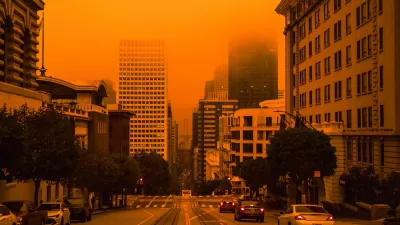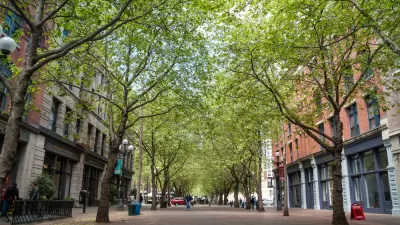Some of my acquaintances believe that climate change may end human life (or at least civilization) and that the only way to save humanity is to massively reduce economic growth and consumption. Other acquaintances believe that climate change is, if not an outright hoax, a minor problem- and that even the slightest attempt to regulate emission-creating industries will itself destroy American civilization.
Some of my acquaintances believe that
climate change may end human life (or at least civilization) and that the only
way to save humanity is to massively reduce economic growth and consumption. Other acquaintances believe that climate
change is, if not an outright hoax, a minor problem- and that even the
slightest attempt to regulate emission-creating industries will itself destroy
American civilization.
Most of these people are not scientists
(let alone scientists specializing in climate-related science), so I strongly
suspect that their opinions come from Al Gore's movie and Rush Limbaugh's talk
show, rather than from a comprehensive review of the
footnote-filled scientific papers addressing climate change. Nevertheless, they are as certain in their opinions
as real scientists are. How come?
A plausible explanation
was supplied by a Harvard Law Review article I recently read.* The article links disputes over
technical issues to clusters of values that form competing cultural worldviews,
most notably "egalitarian" and "individualist" worldviews.
The article asserts that egalitarians are
"naturally sensitive to environmental hazards, the abatement of which justifies
regulating commercial activities that produce social inequality." In other words, egalitarians are predisposed
to be hostile to large-scale capitalism, and will thus naturally believe any
theory that supports this predisposition.
When capitalism failed to deliver economic growth in the 1930s, some
intellectuals supported communism as more likely to do so (and perhaps more
likely to enhance the status of intellectuals by dragging down corporate elites
that outrun them in the race for wealth and power). And when capitalism has delivered economic
growth, modern egalitarians decided that growth wasn't so great after all.
By contrast, the article notes,
"individualists" generally "dismiss claims of environmental risk as specious,
in line with their commitment to the autonomy of markets." In other words, individualists believe that
(1) government should only regulates transactions that cause harm to others,
and (2) this no-harm rule justifies a small government that does not interfere
with commercial activity except to prohibit force and fraud. But proposition (2) makes sense only if
most commercial transactions in fact do not cause significant harm to
nonparties (or to use an economic term, "externalities"). But if nearly all commerical transactions do in fact
create dangerous greenhouse gas emissions, proposition (2) fails,
which means that the entire ideology of individualism is based on a falsehood
(the idea that business activity does not generally create externalities
justifying regulation). Because climate
change appears to threaten the core idea of individualism, individualists will engage in considerable intellectual gymnastics to avoid climate regulation.
In sum, most people (other than a few
scientists and economists who actually know what they are talking about)** with
strong opinions on climate policy are responding less to objective reality than
to their cultural values. As a practical
matter, this means that Americans are going to have a great deal of difficulty
reaching a popular consensus on climate policy; because the issue is so
technical, ill-informed public opinion is likely to be impervious to new
scientific evidence. The stalemate can only be broken through
policies that appeal to both sides.
Indeed, the climate change stalemate
provides a lesson for policy entrepreneurs in other fields (such as
planning-related issues). Policies that
attract broad popular support will be policies that attract support from both
egalitarians and individualists. For
example, zoning (despite its many flaws) is popular because it appeals to both
egalitarians' desire to bridle developers and to individualist homeowners'
desire to protect their property rights (since even individualist homeowners
often see their neighborhood as part of their property).
*The cite is 119 Harvard Law Review 1071, and the article is available online at http://www.harvardlawreview.org/issues/119/feb06/kahan.pdf
**I make no claim to be part of this
group.

Study: Maui’s Plan to Convert Vacation Rentals to Long-Term Housing Could Cause Nearly $1 Billion Economic Loss
The plan would reduce visitor accommodation by 25,% resulting in 1,900 jobs lost.

North Texas Transit Leaders Tout Benefits of TOD for Growing Region
At a summit focused on transit-oriented development, policymakers discussed how North Texas’ expanded light rail system can serve as a tool for economic growth.

Using Old Oil and Gas Wells for Green Energy Storage
Penn State researchers have found that repurposing abandoned oil and gas wells for geothermal-assisted compressed-air energy storage can boost efficiency, reduce environmental risks, and support clean energy and job transitions.

Private Donations Propel Early Restoration of Palisades Playground
Los Angeles has secured over $1.3 million in private funding to restore the Pacific Palisades playground months ahead of schedule, creating a modern, accessible space that supports community healing after recent wildfires.

From Blight to Benefit: Early Results From California’s Equitable Cleanup Program
The Equitable Community Revitalization Grant (ECRG) program is reshaping brownfield redevelopment by prioritizing projects in low-income and environmental justice communities, emphasizing equity, transparency, and community benefits.

Planting Relief: Tackling Las Vegas Heat One Tree at a Time
Nevada Plants, a Las Vegas-based nonprofit, is combating the city’s extreme urban heat by giving away trees to residents in underserved neighborhoods, promoting shade, sustainability, and community health.
Urban Design for Planners 1: Software Tools
This six-course series explores essential urban design concepts using open source software and equips planners with the tools they need to participate fully in the urban design process.
Planning for Universal Design
Learn the tools for implementing Universal Design in planning regulations.
Ascent Environmental
Borough of Carlisle
Institute for Housing and Urban Development Studies (IHS)
City of Grandview
Harvard GSD Executive Education
Toledo-Lucas County Plan Commissions
Salt Lake City
NYU Wagner Graduate School of Public Service






























